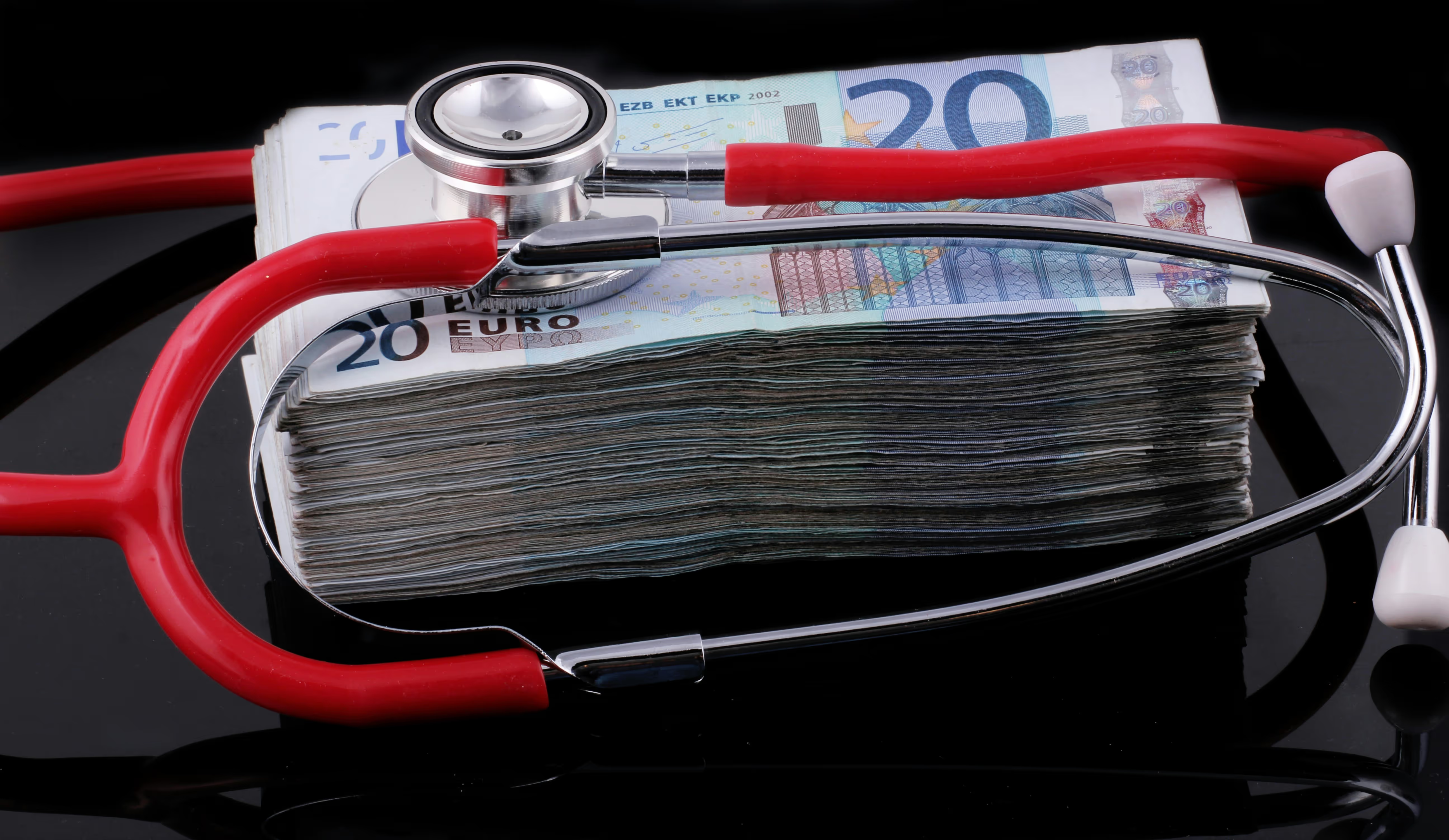
Kudos has partnered with CardRatings and Red Ventures for our coverage of credit card products. Kudos, CardRatings, and Red Ventures may receive a commission from card issuers. Kudos may receive commission from card issuers. Some of the card offers that appear on Kudos are from advertisers and may impact how and where card products appear on the site. Kudos tries to include as many card companies and offers as we are aware of, including offers from issuers that don't pay us, but we may not cover all card companies or all available card offers. You don't have to use our links, but we're grateful when you do!
Does Medical Debt Affect Your Credit Score?
July 1, 2025


Quick Answers
Medical collection debt under $500 will not appear on your credit reports from the major credit bureaus.
Any medical collection debt that you have paid off is completely removed from your credit report.
Unpaid medical debt exceeding $500 will only be reported to credit bureaus after it has been in collections for one year.
What Is a Medical Debt?
Medical debt is an outstanding financial obligation resulting from healthcare services or treatments. This type of debt can accumulate from various sources, including hospital stays, emergency room visits, doctor's appointments, and prescription drug costs. It often arises when insurance doesn't cover the full cost of care, leaving patients responsible for deductibles, copayments, or services deemed out-of-network.
When medical bills go unpaid, they can be sold to a collection agency, which may then report the delinquency to the major credit bureaus. Once a medical collection account appears on a credit report, it can have a significant effect on an individual's credit score. This, in turn, can influence a person's ability to secure future loans, mortgages, or other forms of credit.
How Medical Debt Can Affect Your Credit Score
Unpaid medical bills won't immediately harm your credit. However, if the debt remains unsettled, it can trigger a series of events that may eventually lead to a negative mark on your credit report.
- Initial Billing and Grace Period: After receiving medical care, you get a bill. This initial debt is not reported to credit bureaus. A one-year grace period begins before any unpaid medical debt can affect your credit report.
- Account Becomes Delinquent: If the bill is not paid by its due date, it becomes delinquent. The healthcare provider will typically attempt to collect the payment through reminders and calls, but it still does not impact your credit score.
- Debt Is Sold to Collections: If the bill remains unpaid for an extended period (often 90-180 days), the provider may sell the debt to a third-party collection agency. This is the critical step that puts your credit at risk.
- Reporting to Credit Bureaus: The collection agency can report the delinquent account to the major credit bureaus (Equifax, Experian, and TransUnion). However, medical collection debt under $500 will not appear on your credit reports.
- Impact on Your Credit Score: If a medical collection account over $500 is added to your credit report, it can significantly lower your score. The good news is that once you pay off the medical collection, it must be removed from your report.
How Much Will Medical Debt Affect Your Credit Score?
The exact impact of medical debt on your credit score depends on several key factors. Here are the main things to consider:
- Reporting Status. A medical bill only affects your credit after it's sent to a collection agency and reported to credit bureaus. This usually happens after several months of non-payment, giving you time to address the bill first.
- New Scoring Models. Newer credit scoring models, like FICO 9 and VantageScore 3.0 and 4.0, give less weight to unpaid medical collections. Paid-off medical collection debt is often excluded from calculations entirely, reducing its long-term impact.
How You Can Avoid Medical Debt Affecting Your Credit Score
Review Bills for Errors
Always scrutinize your medical bills for inaccuracies. Billing errors are common and can inflate what you owe. Contact the provider’s billing department immediately to dispute any questionable charges, preventing an incorrect debt from reaching collections or your credit report in the first place.
Negotiate a Payment Plan
Don't ignore a bill you can't afford. Proactively contact the healthcare provider to negotiate a manageable payment plan or inquire about financial assistance. Many hospitals have programs to help patients, which can keep your account in good standing and away from credit bureaus.
Understand Your Insurance
Understanding your health insurance policy is crucial. Before receiving care, confirm what is covered, your deductible, and potential out-of-pocket costs. This foresight helps you financially prepare and avoid unexpected bills that could become unmanageable debt affecting your credit score.
Ways to Improve Your Credit Score
Improving your credit score is always possible with consistent, positive financial habits. Whether you're aiming to boost your FICO® or VantageScore, there are proven methods to enhance your creditworthiness and build a healthy profile.
- Monitor your credit reports. Obtain free reports from the three major bureaus—Experian, TransUnion, and Equifax—to check for inaccuracies that could be dragging down your score.
- Set up automatic payments. Your payment history is the most significant factor in your score, so ensuring bills are paid on time is a critical step.
- Reduce your credit utilization. Aim to use less than 30% of your available credit, as high balances can signal financial distress to lenders.
- Become an authorized user. Being added to an account with a long history of on-time payments and low utilization can give your score a boost.
- Diversify your credit mix. Lenders like to see that you can responsibly handle different types of credit, such as revolving credit cards and installment loans.
- Limit hard inquiries. Only apply for new credit when necessary, as too many applications in a short period can temporarily lower your score.
The Bottom Line
While medical debt can lower your credit score, recent reporting changes offer consumers more time to resolve bills and have paid collections removed from their credit reports.
Frequently Asked Questions
How long does medical debt stay on your credit report?
Unpaid medical collection debt can remain on your credit report for up to seven years, but paid medical collections are now removed entirely from reports.
Can I negotiate my medical bill before it goes to collections?
Yes, you can often negotiate a lower price, ask for an itemized bill to spot errors, or arrange a payment plan directly with the healthcare provider.
Do all medical debts affect my credit score?
No. Medical collection debts under $500 are no longer included on credit reports. Furthermore, paid medical collection debt is removed and will not impact your score.

Supercharge Your Credit Cards
Experience smarter spending with Kudos and unlock more from your credit cards. Earn $20.00 when you sign up for Kudos with "GET20" and make an eligible Kudos Boost purchase.
Editorial Disclosure: Opinions expressed here are those of Kudos alone, not those of any bank, credit card issuer, hotel, airline, or other entity. This content has not been reviewed, approved or otherwise endorsed by any of the entities included within the post.




















.webp)
.webp)
.webp)
.webp)
















